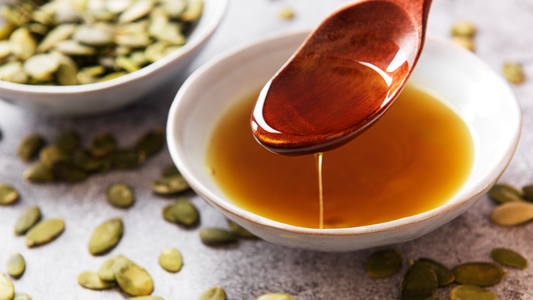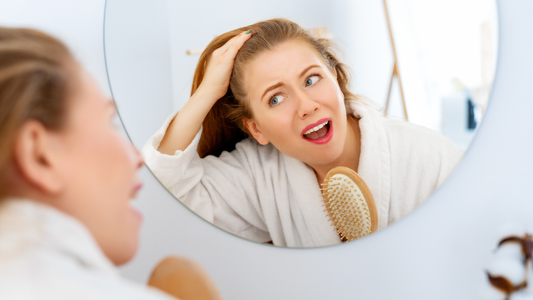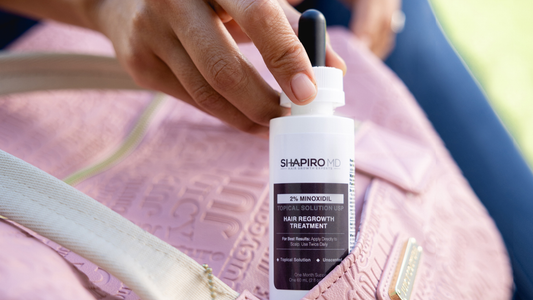Creatine, also called creatine monohydrate, is one of the world’s most popular exercise and dietary supplements.
Repeat scientific studies have shown that using creatine can help increase muscle mass, strength, and performance.
Despite positive reviews, creatine is widely thought to cause hair loss in men.
Although there are anecdotal accounts of men claiming to have experienced hair loss after taking creatine, there is little scientific evidence that confirms this phenomenon.
So, where does the rumor that creatine leads to hair loss come from?
In this article, we take a closer look at what creatine is, what benefits it offers, and whether it really causes hair loss.
Summary
Creatine is a natural substance found in the body. Its synthetic form—creatine monohydrate—is commonly used as a sports supplement.
Some of the benefits of taking creatine include increased muscle mass, improved strength, and a quicker recovery time after exercise.
Various anecdotal accounts and rumors have linked creatine supplementation to hair loss among men.
There is currently very little scientific evidence that confirms or denies whether taking creatine can cause hair loss.
With the right products, most types of temporary and genetic hair loss conditions are treatable.
First, What Is Creatine and How Does It Work?
Derived from the Greek word for meat, creatine is a naturally-occurring substance found in muscle cells that helps produce energy during high-intensity exercise.
Creatine produces adenosine triphosphate (ATP). This molecule plays a key role in transferring energy from the body’s cells to power the muscles. Almost like a battery, ATP delivers chemical energy to the body to power movements like walking, running, or weight lifting.
Although ATP is critical for powering the cells, it’s only stored for about eight to ten seconds during high-intensity activity.
When muscles contract while exercising, the already limited concentration of ATP in the cells gets used up at a faster rate.
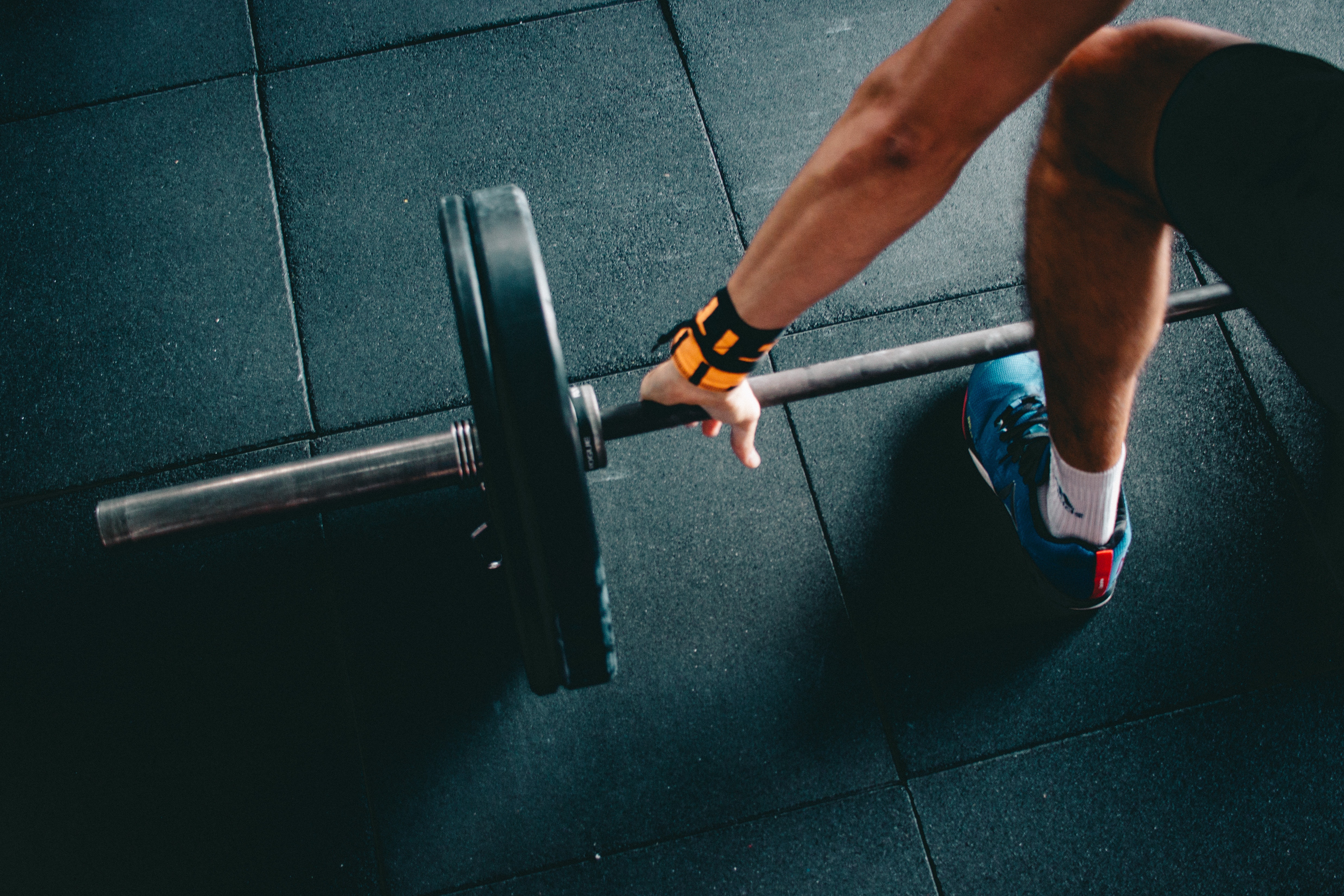
This is where creatine’s synthetic form—creatine monohydrate—comes in.
When it’s taken as a sports supplement, creatine produces new ATP in the cells during vigorous exercise.
This ensures that the muscles receive a “boost” to exercise or work for longer time periods.
Due to its performance-enhancing effect, creatine is commonly used in power and strength sports like hockey, bodybuilding, resistance training, wrestling, and football.
Research shows that if you take creatine for high-intensity exercise, it can:
- Prevent or alleviate symptoms of an injury.
- Enhance energy levels and muscle mass during exercises.
- Improve your physical performance.
- Aid faster recovery after exercising.
Creatine supplementation has also been proven to decrease muscle cramping, tightness, heat intolerance or dehydration, and muscle strains.
Is Creatine Safe to Use?
Most healthy people can take 3-5 grams of creatine per day without experiencing any negative side effects.
In fact, studies show that taking creatine supplements for up to five years doesn’t have a negative effect on your health and can continue improving your athletic performance.
Possible Side Effects of Creatine Supplements
Although side effects are rare, some people may experience:
- Excessive weight gain.
- Diarrhea.
- Headache.
- Nausea.
- Dizziness.
- Dehydration.
- Rashes.
- Stomach cramps.
People who suffer from kidney or liver disease, are under 18 years old, or are pregnant or breastfeeding are also advised to avoid creatine.
To minimize the risk of adverse reactions, make sure that you speak to your doctor before incorporating creatine into your diet.
Creatine and Hair Loss: Fact or Fiction?
Although there’s very little concrete evidence on the matter, creatine is widely believed to cause hair loss in men.
The rumors began in 2009, following a study conducted in South Africa on a group of college-aged rugby players.
As part of their creatine loading phase, one group took 25g of the sports supplement every day for a period of three weeks. This is 5g more than the recommended dosage.
The Results
At the end of the study, the researchers found that creatine may increase the conversion of testosterone to dihydrotestosterone (DHT).
This is widely known as the “hair loss hormone” and is considered one of the main causes of male pattern hair loss.
However, even though the creatine group’s DHT levels increased, they remained well within the normal range compared to the placebo group.
Not only was the study limited to a very small sample and time frame, but it also didn’t explicitly link creatine usage to hair loss.
Shortly after the study was published, the findings started circulating on social media and the hair loss creatine rumors were born.
The Link Between Creatine, DHT, and Hair Loss
Dihydrotestosterone is a natural hormone found in men and women. During puberty, much like testosterone, DHT contributes to:
- A deeper voice in men.
- Developing more body hair.
- Maintaining healthy muscle mass.
- Proper sex organ development and function.
Although women have DHT and testosterone in their bodies, they don’t have as much of it compared to men.
As DHT travels through the body, it binds to receptors on hair follicles. Over time, this shortens the hair growth cycle and may cause hair thinning or hair loss.
How Does Creatine Fit In?
As mentioned before, the study conducted in 2009 found that creatine consumption may increase DHT levels.
Given that DHT is the hormone behind male pattern baldness, it led people to believe that taking creatine interfered with the hair growth cycle.
In other words, people thought that taking creatine accelerated how DHT impacts hair follicles and could cause follicles to grow fewer, thinner, and weaker hairs—eventually leading to hair loss.
Although it’s possible that creatine can impact DHT and hair growth, there’s not enough scientific proof to confirm or explicitly negate these claims.
Similarly, people who believe the anecdotal accounts of creatine causing hair loss tend to forget that hair loss can be caused by a variety of factors. For example, men who take creatine and experience hair loss may have been genetically predisposed to balding anyway. Weight lifting and associated creatine use often occurs around the same time that hair thinning and loss begins in men who are predisposed: in their 20s and 30s.
Or, lifestyle choices and medical conditions may be to blame. Some of the other factors that can lead to hair thinning or complete hair loss include:
- A hormonal or chemical imbalance.
- Medications such as blood thinners.
- Thyroid problems.
- Autoimmune diseases brought on by infections.
- A vitamin B or iron deficiency.
- Dramatic weight loss.
How Do I Treat Thinning Hair and Rapid Hair Loss?
If you notice that your hair is thinning or falling out, there’s a good chance that you can restore hair loss with the right treatments.
Similarly, medication that causes hair loss is usually reversible, and hair tends to grow back once you stop taking the medication.
You may also notice that your hair starts thinning when you lose weight. This is temporary and your hair will generally regrow once you start increasing protein consumption.
If you have a genetic predisposition to hair loss, it may not be as easy to grow your hair back without professional help.
The good news is that there are a variety of prescription medications, medicated shampoos, and over-the-counter products that can help manage and even reverse hair loss.
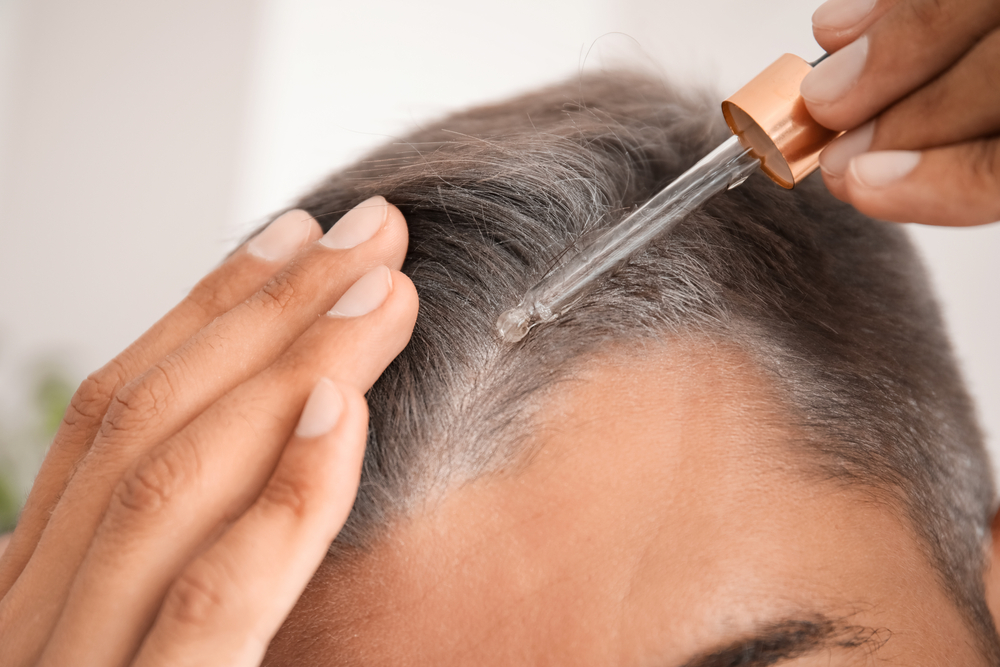
Key Ingredients to Look for In Hair Loss Treatments
Whether you’re suffering from temporary hair loss or looking to combat male pattern baldness, prescription and over-the-counter formulas both may be able to help.
Natural shampoos, conditioners and leave-in treatments—like those from Shapiro MD—contain ingredients that fight DHT and can yield great results.
Let’s take a closer look at some of these powerhouse ingredients for hair loss.
Saw Palmetto
This is a botanical extract that has been shown to regulate DHT levels and can help in reducing the appearance of thinning or breaking hair at any age.
Saw palmetto slows down the conversion of testosterone to DHT to help with thicker looking hair, reducing inflammation, and promoting healthier follicles.
Green Tea
Epigallocatechin gallate (EGCG) is a powerful green tea extract that has also shown to minimize the effects of DHT and promote hair regeneration.
By increasing blood flow to the hair follicles, green tea can also supply the scalp with more nutrients for healthier and stronger-looking hair.
Finasteride
This is an FDA-approved prescription medication that’s taken orally.
Like saw palmetto, finasteride works by inhibiting the enzyme 5-alpha reductase that converts testosterone into DHT.
Finasteride is effective for most men who use it. Taking finasteride has been shown to result in a significant improvement in hair count and thickness.
Shapiro MD offers finasteride that can be taken on its own or used in combination with 5% minoxidil for even better results.
Minoxidil
Minoxidil is an over-the-counter topical agent available in two strengths, 2% and 5%.
As the only FDA-approved hair loss treatment for both men and women, it's believed to stimulate hair growth by shortening the resting phase and speeding up the growth phase of the hair cycle.
Minoxidil also improves blood flow to the scalp, which may help to supply your hair with the nutrients it needs to grow more effectively.
Not only does minoxidil stimulate natural hair regeneration, but it also slows down the balding process in many men and women.
Tretinoin
Tretinoin is another effective ingredient in Shapiro MD’s custom prescription treatments.
Also known as retinoic acid or Retin-A, tretinoin is a vitamin A derivative that was developed in the 1950s to improve the appearance of aging skin and to combat acne.
It has also shown promise for hair regrowth in many clinical studies.
In a study on male pattern baldness, 56 participants were given tretinoin and minoxidil. The researchers looked at tretinoin taken alone and with minoxidil.
A year later, it was found that the combination of tretinoin and minoxidil resulted in the regrowth of permanent hair in 66% of the subjects. Of the subjects who took tretinoin on its own, only 58% experienced hair growth. This study proves what a powerful combination tretinoin and minoxidil can be.
Tretinoin may help with minoxidil absorption, accelerate skin cell activity, and improve collagen production throughout the skin to promote greater hair growth.
Regrow Stronger, Healthier Hair Today
Regardless of whether your hair thinning is temporary or if you’d like to explore hair loss treatments, Shapiro MD can help.
From shampoos and conditioners to oral supplements and hair growth kits, we offer a variety of OTC and prescription solutions that are formulated to repair and regrow hair.
The best part of all? You can access our proven hair loss prevention tools and personalized hair loss treatments from the comfort of home.
To learn more, read the reviews from satisfied customers who’ve successfully regrown their hair using Shapiro MD formulas.
Then, shop the whole selection of natural- and FDA-approved hair loss products today.

